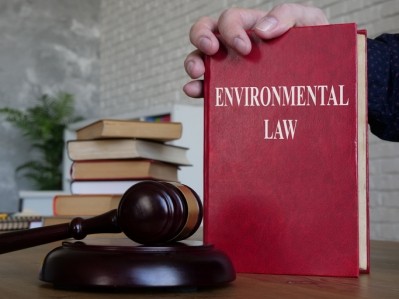Nestle lawsuit looks at GMO feed use, labeling

California resident Jennifer Latiff filed a lawsuit against Nestle USA, Inc. at the end of July in the US District Court for the Central District of California, Western Division. She also requested in the lawsuit that it be certified as a class action for others “similarly situated.”
Overall, the lawsuit alleges that Nestle is misleading customers with its products that carry a “No GMO Ingredients” label, according to court documents.
“This is a proposed class action against Nestle USA, Inc. for misleading consumers about its products that bear a ‘No GMO Ingredients’ certificate of approval on the packaging, that appears to be that of an independent third-party, when, it in fact, is not,” Latiff’s lawyers said in the complaint.
Feed used for animals producing ingredients for Nestle products was one focus of the lawsuit, according to court documents. The goal of the lawsuit is to have the company stop its alleged “deceptive practice” and recover “ill-gotten gains” generated.
Feed use and labeling
Nestle said that it does not consider the use of GMO feeds or feed ingredients to mean that the animal proteins, like milk or eggs, produced by animals eating those feeds are GMO products.
“We do not consider ingredients derived from animals fed with GMO feed to be GMO ingredients,” the company said. “This aligns with the SGS No GE Ingredients Supply Chain Standard and laws and regulations in the European Union and Australia.”
When asked about the lawsuit, a company spokesperson told us that the “lawsuit is baseless.”
“Our product labels that declare the absence of GMO ingredients are accurate, comply with FDA and USDA regulations, and provide consumers with information to help them make informed purchasing decisions,” the spokesperson said. “As indicated on our labels, the process for manufacturing Nestlé’s products bearing a ‘No GMO Ingredients’ claim is verified by SGS, a world leader in third-party inspection, verification, testing and certification.”
SGS’s US standards regarding products that make claims about the absence of GMO or GE ingredients follow current US federal law, which permits the exemption of animal products derived from animals given GE feed, according to company information.
Latiff’s lawyers could not be reached for comment by press time.
Lawsuit highlights
In the lawsuit, Latiff alleges that the company’s representations are false and that the seal used was created by Nestle.
“No GMO Ingredients is not a designation bestowed by a non-profit group, or even a neutral third party, but instead is the creation of [the] defendant,” according to court documents. “In other words, the No GMO Ingredients seal of approval is nothing more than defendant touting its own products.”
The lawsuit also claims that Nestle’s seal was designed to look like other labels, including those used by the Non-GMO Project, according to court documents. “Looking to profit off consumer desire for independently validated products, defendant has created a deceptive No GMO Ingredients seal of approval label that mimics the Non-GMO Project seal.”
Additionally, Latiff’s lawyers said in the lawsuit that ingredients used in products are “derived from GMOs,” according to court documents.
“Defendant’s products that contain dairy comes from cows fed GMO grains,” her lawyers said in the complaint. “This violates the Non-GMO Project standard, which does not allow for its seal of approval to be placed on dairy-based products that could be from animals fed GMO feed.”
“Defendant avoids the Non-GMO Project’s feed standard by using its own, self-created No GMO Ingredients seal, thereby creating confusion and deceiving consumers,” according to the complaint. “Defendant’s own ‘standard’ allows for the use of GMO feed for dairy animals. The Non-GMO Project’s independent standard does not.”
This disconnect is deceptive, alleged Latiff’s lawyers in the lawsuit. “As a result of this deceptive label, consumers paid a significant premium to purchase a non-GMO product to avoid the well-known health and environmental risks associated with GMO products… consumers did not receive the benefit of the bargain,” they added.
Latiff purchased several products with the No GMO Ingredients label with the belief that they were non-GMO based on the labeling used, according to court documents.
The lawsuit claims that Nestle’s use of the label violates the unfair competition code and constitutes false advertising, according to court documents. The practices also are being challenged through the Consumers Legal Remedies Act.
In the lawsuit, Latiff is asking for certification of the class action, a declaration that the company has committed the alleged violations, “restitution and disgorgement” and “declaratory and injunctive relief” along with compensatory damages, punitive damages, attorneys’ fees the cost of the lawsuit and any additional relief set by the court, according to court documents.












